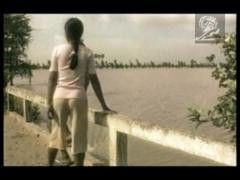Cannes Lions
Call in Sick for Earth Day
SID LEE, Montreal / EARTH DAY / 2023

Overview
Entries
Credits
OVERVIEW
Background
The brief was: How can we help eco-anxious people feel better?
Eco-anxiety is not new.
It’s been around for some time, and as climate change keeps bringing dark perspectives, it affects more and more people.
Yet, it’s not considered a real disease. Not by the World Health Organisation, nor by society.
When you’re eco-anxious, you already feel isolated and helpless about the future of humanity, thinking you are the only one worrying about it, as you see the rest of the world continuing to do what they always have, like there’s no problem.
So ignoring the condition, on top of already feeling ignored as a person, reinforces the anxiety. We’re talking about, not just a few ecologists, but hundreds of millions of people around the world.
So to help eco-anxious people feel better, the first objective we chose was to recognize their mental illness.
Idea
Every year on April 22, we celebrate Earth Day, but in 2022, we got Earth Day Canada to change the meaning of their Day, making it a sick day instead.
We invited all the eco-anxious folks out in the world to call in sick, so the condition and those suffering from it could no longer be ignored.
We had a lot of push back as TV media, municipalities and companies refused to support our cause or partner with us, arguing that eco-anxiety was not a real disease.
This led us to react with psychologists to create Remedy Together, a website where anyone could ask for a sick day and get a medical note.
Since one of the best ways to ease eco-anxiety is doing good for the planet alongside other people, the website also offered a variety of collective activities one could join in on while taking their sick day.
Strategy
From the get go, we consulted with psychologists to get insight about eco-anxiety.
What we learned helped us shape our campaign around 3 pillars:
Normalizing eco-anxiety as a real thing so that the people suffering from it get reassurance that they are not wrong.
Bringing them together so they feel less isolated.
Allowing them to do good for the planet so they feel less helpless.
The Target audience is massive, but our initial area of influence was Canada, our client being Earth Day Canada, we decided to focus on the 16-35 age group, as they were over represented in our data.
Our secondary target was society as a whole, as we also targeted municipalities, companies, and media. Also, we were hopeful we could cross some borders with the universality of our call to action: Call in sick for Earth Day.
Execution
Our client being an NGO, we focused on assets we could get gratuity for:
Canadian TV, radio, guerrilla posters and our own social media.
We also reached out to cities to organize Earth Day activities and to companies to encourage eco-anxious employees to join the movement.
We got push back. We had to change our TV ad messaging because broadcasters were not willing to play along (we released an uncensored version on Youtube), municipalities were okay to support our collective activities but not our “Call in Sick for Earth Day” message, and all companies politely refused our invitation to take care of their eco-anxious employees.
This really encouraged us that the campaign was having an impact, and led us to create “Remedy Together” with psychologists, a website where any eco-anxious person could get a medical note to justify a sick day on Earth Day.
Outcome
Getting closer to the annual April 22 rendez-vous, we got 120 Canadian media outlets to talk about the campaign, helping to put eco-anxiety on the map. Our campaign even reached some media outlets in France and Brazil.
Overall with our $0 budget, impressions reached 9 million.
This helped “eco-anxiety” emerge as a different health topic in a context still dominated by Covid. On the days just before Earth Day, searches for “eco-anxiety” on google spiked, with 4 times more requests than usual.
As a result, around 50,000 people visited the website to call in sick.
And consequently, all collective activities across Canada were a success, eco-anxious people helped pick up tons of trash, planted thousands of trees, and most importantly, helped thousands of eco-anxious people to feel together and therefore better.
It’s a good start, yet the fight must continue to get eco-anxiety fully recognized as mental illness.
Similar Campaigns
9 items




